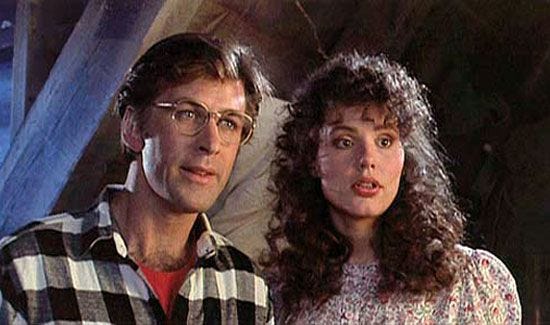Who Takes Responsibility When Evil Prevails?
Written on
The Complexity of Blame
In the film Beetlejuice, two contrasting families are thrust together due to unforeseen events, revealing how actions rooted in a 'desperate times call for desperate measures' mindset can lead to disastrous outcomes if not approached with caution.
Adam and Barbara Maitland, having recently passed away, are eager to remove the Deetz family from their home. In their urgency, they mistakenly call upon Beetlejuice, a malevolent spirit, despite explicit warnings against trusting him. The repercussions of unleashing such evil are swifter than one might anticipate.

Understanding the Id through Beetlejuice
Beetlejuice embodies the concept of the id — an entity lacking a moral compass or impulse regulation, driven solely by self-interest. According to Sigmund Freud's psychoanalytic framework, the psyche consists of three components:
- The ID acts on primal instincts, seeking immediate gratification without regard for societal norms or ethics. Imagine wanting a donut so badly that you grab it from someone else's hand and devour it right in front of them.
- The EGO aims to fulfill the desires of the id in socially acceptable ways. In the donut scenario, instead of stealing, you would politely ask if there’s another one available.
- The SUPEREGO represents our moral compass, shaped by societal and familial influences — the ideal self we aspire to become. Ideally, you'd bake your own donuts and possibly share them.
In this narrative, Beetlejuice is not the sole party accountable for the chaos that ensues. The Maitlands were given clear warnings about his nature. Was it truly wise to summon a known evil entity for the sake of a home improvement?
The Deetzes' Selfish Agenda
Upon learning about the existence of ghosts, the Deetz family seeks to exploit this knowledge for their gain, disregarding the potential repercussions. Their eagerness to resurrect the dead for entertainment illustrates a shocking lack of foresight, which they come to regret far too late.
Beetlejuice thrives on disorder, bound only by the laws governing the spirit realm. The Maitlands' choice to summon him, despite numerous chances to reconsider, along with the Deetzes' reckless ambition to awaken the dead, not only jeopardizes their lives but also poses a threat to the world at large.
The prevailing notion is that the flourishing of evil can be attributed solely to the malevolence itself. However, we often ignore how we might inadvertently invite such evil into our lives, especially if we believe it could yield personal benefits.
The Illusion of Control
The idea that we can master these dark forces is a mere illusion, and the chaos that ensues can result in significant harm.
In the midst of this turmoil, Lydia, an innocent teenager, finds herself ensnared, striving to protect those she has come to care for. She contemplates marrying the monster to help him escape his limbo. The adults, both alive and dead, have unfairly placed her in this precarious situation, failing to consider the risks of meddling with powers beyond their comprehension.
Much like Pandora's box, if left unopened, it presents no danger. But once it's opened, who bears the blame — the evil unleashed or the one who set it free?
Chapter 2: The Consequences of Choices
In the video "Evil Triumphs When Good Men Do Nothing," we delve into how inaction can empower malevolence, paralleling the themes presented in Beetlejuice.
Another insightful video titled "Don't Blame God - Why Does God Let Bad Things Happen?" by David D. Ireland, Ph.D., explores the philosophical questions surrounding the existence of evil and suffering, further enriching our understanding of this topic.